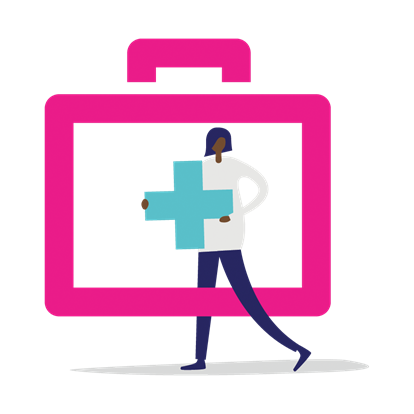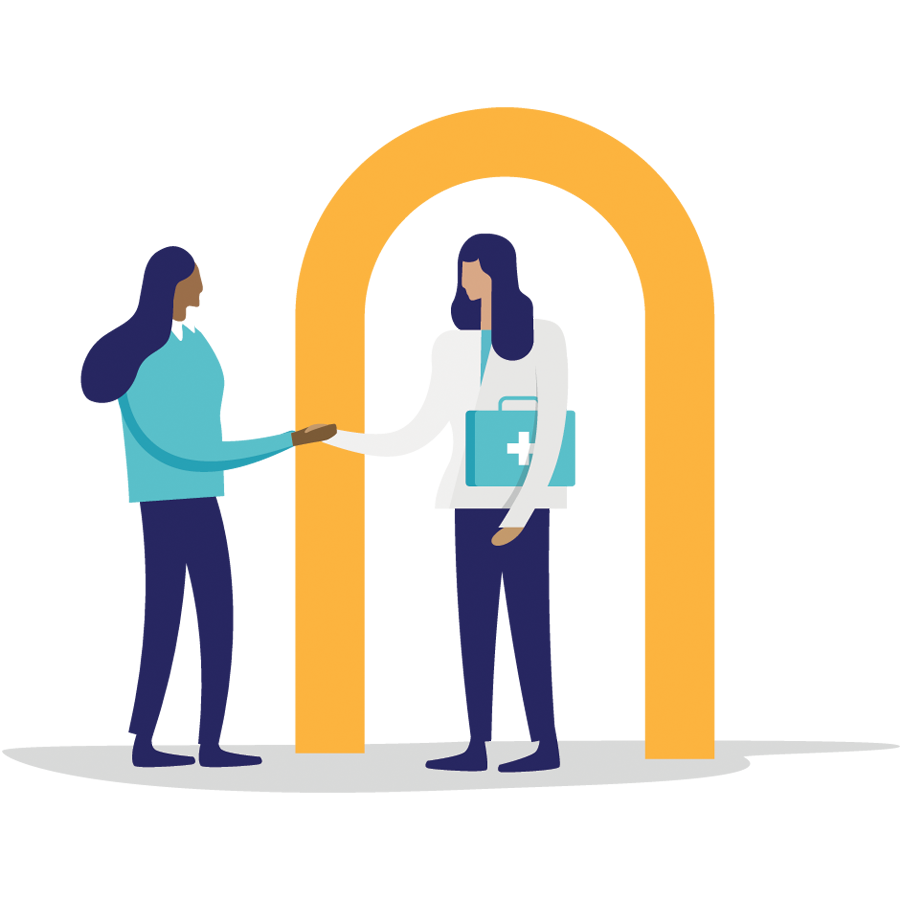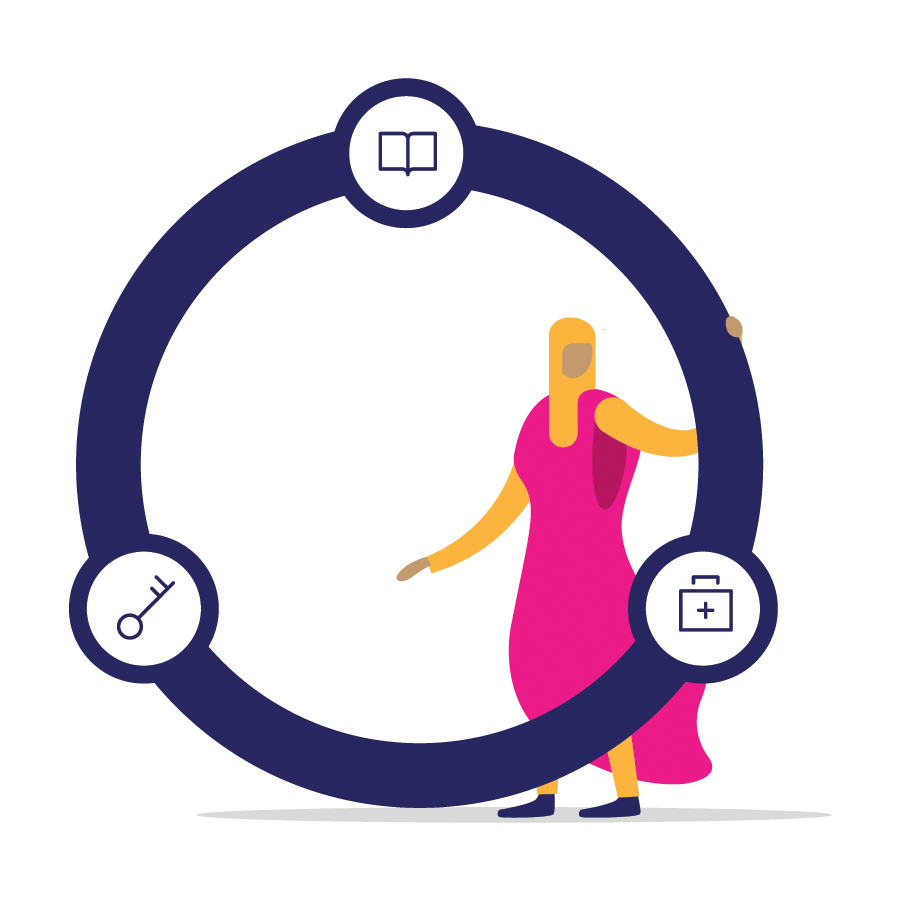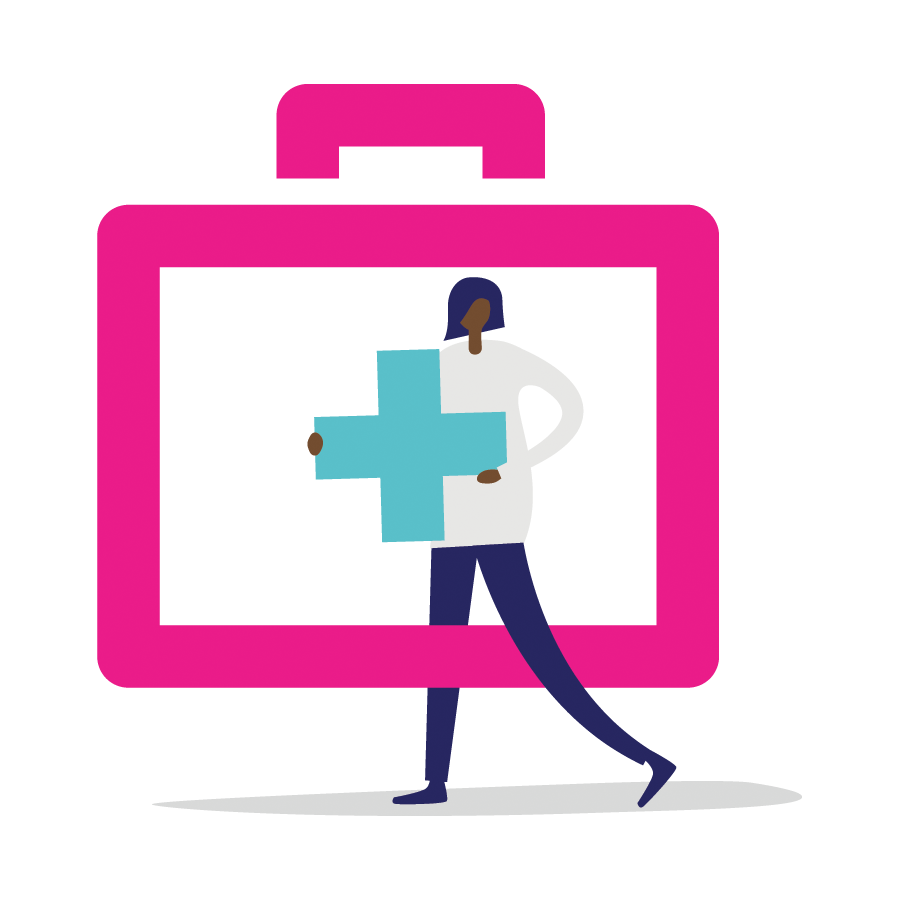Subscribe to our newsletter to receive the latest SafeAccess articles, straight to your inbox.
sign upUnder COVID-19, access to healthcare is changing and the impact on safe abortion and post-abortion care could be severe. To build a live picture of the impact on frontline services, we at SafeAccess are gathering experiences via our short survey, launched in May 2020. In this piece, we share some of the key insights we have received from respondents working on the frontline, so far.

Sharing experiences from a range of roles and settings
Since launching in May, we have received responses from people working in safe abortion and/or post-abortion care provision in Nepal, India, the US, Uganda, Malaysia, Sudan, Malawi, the UK, Vietnam, Pakistan, Myanmar, Sierra Leone and Liberia.
We heard from a range of individuals and organisations, including:
- Abortion providers (doctor, nurse, midwife, pharmacist)
- Abortion service or programme managers
- Organisations supporting safe abortion and post-abortion care services at a community level (e.g. CBO, health promoter or accompanier)
- Organisations supporting access to safe abortion and post-abortion care at district or national level
- Organisations that fund abortions for people living in countries with restrictive abortion laws
- People managing monitoring & evaluation of safe abortion and post-abortion care services
We are still welcoming responses, but here’s what we've heard so far:
Lockdowns are preventing women from accessing safe services
In our survey, we asked how respondents have seen services impacted in their settings, for better and for worse, under COVID-19.
Overwhelmingly, respondents shared that services and access in their communities have been impacted, with 95% of respondents (18/19) sharing that abortion services have been affected directly by the pandemic.
Over three quarters of respondents (14/18) shared that access had been restricted by lockdowns, with women prevented from travelling to services due to roadblocks and restrictions on travelling internationally to a legally permitted setting.
One respondent shared: “Following the presidential directive to stop public transport and use of personal vehicles, the movement of service providers to service delivery points, as well as clients from their homes to health centres, became complicated. This led to clients reporting to health units at later gestational ages than usual.”
Movement restrictions are particularly difficult for young women and women at risk of violence who want to conceal their safe abortion from their families and communities, making it difficult to provide a reason to leave home.
“Young people are also trapped in their hometowns with their parents and leaving home to access services is hard. Even when you are able to travel, you will have to go through police roadblocks and show proof of travel. Imagine a young unmarried person having to inform the police that they are travelling to SRH clinics.”
In Nepal, a national lockdown meant that providers and clients were unable to reach Marie Stopes Nepal’s clinics, forcing them to close until they were able to access permits to travel and re-open. In tandem, the need for safe abortion grew, with Marie Stopes Nepal’s contact centres receiving an increase in phone calls from women seeking abortions services since the lockdown began. Even when services are defined as essential, police barriers can be particularly problematic if women are forced to disclose their service:
“approximately 30 clients out of around 620 reported that they were unable to make it to their appointment as traffic police were not allowing them to pass, asking for more information than the clients were comfortable sharing. This speaks to the nature of the services we offer and the importance of privacy in our line of work.” – Satyajit Pradhan, E2A director, Marie Stopes Nepal
A lack of safe access could lead to additional unsafe abortions
We know from former health crises that diverting resources away from reproductive healthcare can weaken health systems and lead to additional deaths. During the Ebola epidemic, as many, if not more people died from increased barriers to reproductive healthcare than from the virus itself. During lockdowns, rates of sexual violence can increase and reduced access to contraception can lead to additional unplanned pregnancies, unsafe abortions and maternal deaths.
Vivian, who works as a Marie Stopes International midwife in Kumasi, Ghana, relayed that her centre has seen a rise in unintended pregnancies, with women unable to travel to her clinic during lockdown. One client shared with Vivian: “I had to lie and pretend that I was seriously ill before (security personnel) would allow me to come for your services.”
With women unable to access safe abortion and contraception services, some are taking matters into their own hands. Since the lockdown began, Vivian has delivered life-saving post-abortion care to a woman who had resorted to an unsafe abortion at home.
The grave outcomes of restrictions on safe services were echoed by this survey respondent:
“There is a problem that girls and women who are far from our facilities have nothing to do other than try crude methods. Reports from the government health facilities state that there are deaths and many with complications as a result of use of unsafe methods, with the biggest contributor being restricted movement.”
It’s essential that governments globally define safe abortion and post-abortion care as essential services, to keep safe services open and accessible.
A shift in focus: health systems diverting resources to COVID-19 response
Several respondents shared that they have seen services face challenges due to a lack of resources, with health systems diverting their focus to address COVID-19.
As a result, some services have faced suspension, a lack of PPE, a shortage of products (medical abortion medication or MVA equipment for surgical abortion), clients fearing infection from health facilities and in some cases, clients facing delays in accessing care, arriving beyond the gestational limit.
The challenges that respondents shared (in descending order of frequency) were:
- Services suspended temporarily due to COVID-19 restrictions
- Lack of PPE for providers
- Problems with supplies of medical abortion pills (misoprostol and/or mifepristone)
- Clients being fearful of infection
- Suspensions or delays in training and capacity building due to COVID-19
- Issues with attaining MVA equipment or other supplies for surgical abortion
- Staff shortages to deliver abortion care
- Clients facing additional barriers to paying for services
- Recent legal changes making it harder to access SA/PAC
- Clients unable to receive safe abortion care as they were beyond the gestational limit
- Clients not able to get appointments
- Clients arriving at a later gestational point than usual
- Services were blocked or interfered with by anti-choice groups
- Community backlash against services
Respondents also shared that this impact could be seen across sexual and reproductive healthcare:
“Family planning methods are hardly available at almost all service points, pills and injectables, which would help in communities, do not exist, even in private pharmacies and drug shops, and at public health centres, access to family planning is crippled and even worse in lockdown.”
In tandem, several respondents shared that community stigma towards reproductive healthcare has increased. Binod Joshi, Track20 M&E Officer at the Ministry of Health and Population, Nepal, shared:
“People are afraid of seeking hospitals and safe abortion service centres. Another important point is that due to social barriers… [if] a girl or woman goes for abortion services, the family and society starts talking and laughing at her. So, a girl or woman has social problems with this.”
A catalyst for change? Innovations for access under COVID-19
In the survey, we also ask if they have seen any opportunities to expand access under COVID-19.
Respondents shared that it’s been positive to see several governments reinforcing that sexual and reproductive health care services are essential. In settings like India, this has allowed services to re-open safely, despite the strict lockdown.
In addition, several respondents shared that COVID-19 has instigated a digital transformation in access to safe abortion care, from the UK to Nepal, opportunities are arising to expand access:
Mara Clarke of the UK’s Abortion Support Network shared: “telemedicine, which was supposedly impossible, very quickly became possible, as did tele-consultations and tele-post abortion check-ups.”
We know that self-administration of medication abortion is safe and effective. A recent review from the WHO found that 94-96% of abortions carried out via telemedicine were complete, matching rates expected from clinic-based care. Evidence-based arguments like these have been essential for advocates at Marie Stopes UK, BPAS and RCOG, who successfully campaigned for home-based abortion care through telemedicine in the UK.
However, one survey respondent shared that we cannot forget women who lack access to mobile phones and telehealth:
“Nowadays, women contact our clinics through our social media or telephone for medical advice and/or services. However, this also poses problems for those women who have no means to access these platforms, especially the underprivileged.”
For these women, it’s essential that services adapt and reach women in their homes. Respondents shared that they were using motorbikes to deliver contraception, emergency contraception and medical abortion medication to women directly, having been granted permits to travel.
Share your insights
Our survey is open, and we welcome individuals and organisations to continue to share their stories. We will be collating data and experiences on a rolling basis and welcome participants to complete the survey as frequently as they like.






